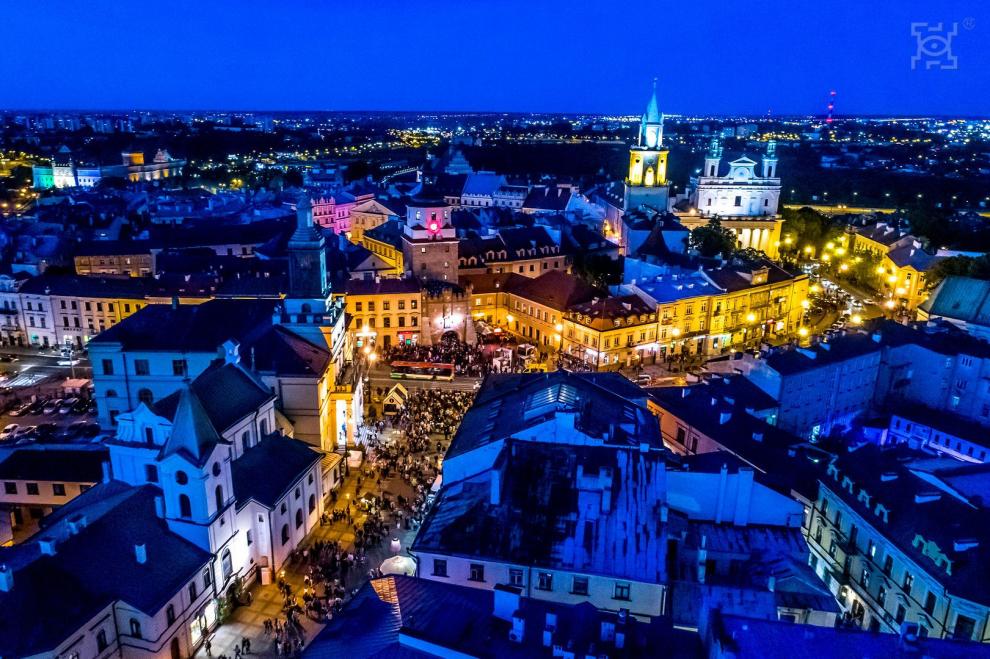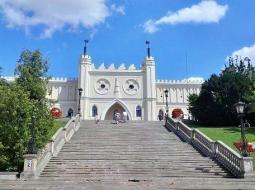Thessaloniki gets ready for its metro launch in November
The underground rapid transit lines have been under construction for almost two decades due to various project delays
 TheMayor.EU logo
TheMayor.EU logo 
The area was likely settled as early as the 6th century, becoming an important trade centre and fortification by the 10th and 11th centuries. The city was destroyed and rebuilt many times in efforts to protect Poland from invading Tatars, Lithuanians and Ruthenians. The city received its municipal charter in 1317, and the castle was built soon afterwards by Kazimierz III Wielki. It was in Lublin in 1569 that the union between Poland and Lithuania was formed, creating the largest state in Europe at the time.
In November 1918, the first independent government of Poland was formed here, which soon handed power over to Józef Piłsudski. Lublin became a Nazi headquarters for Operation Reinhardt, the beginnings of Hitler’s ‘Final Solution’. It was also in Lublin that the provisional communist government was installed by the Soviets in July 1944 during the last stages of World War II. Lublin is considered by some to be the true birthplace of Solidarity – the avalanche of strikes against the communist regime that spread throughout Poland in 1980, eventually leading to the Gdansk agreements. Since WWII, Lublin has expanded threefold to become the biggest city in Malopolska and the most significant industrial and academic centre in Eastern Poland.
Not only has this city witnessed some of history’s most harrowing chapters, it has also been the instigator of social movements, and the setting for some of the country’s most landmark events.
Source: lonelyplanet.com
Lublin is the ninth largest city in Poland and the second largest city of Lesser Poland. It is the capital and the center of Lublin Voivodeship (province) with a population of 349,103 (March 2011). Lublin is the largest Polish city east of the Vistula River and is approximately 170 kilometres to the southeast of Warsaw by road.
The Lublin region is a part of eastern Poland, which has benefited less from the economic transformation after 1989 than regions of Poland located closer to Western Europe. Despite the fact that Lublin is one of the closest neighbour cities for Warsaw, the investition inflow in services from the Polish capital has secured a steady growth due to relatively fast connection, while external investitions are progressing, enabling nearby satellite municipality Swidnik for large-scale industrial investitions, seamlessly testing the capacity of the agglomeration. The close cooperation with Warsaw is significant to the regional economy, bringing quality cultural events inshore, yet the proximity of Warsaw is an underestimated asset.
Lublin is a regional center of IT companies. Asseco Business Solutions S.A., eLeader Sp z o.o., CompuGroup Medical Polska Sp. z o.o., Abak-Soft Sp. z o.o. and others have their headquarters here. Other companies outsourced to Lublin, to take advantage of the educated specialists. There is a visible growth in professionals eager to work in Lublin, due to reasons, like quality of life, culture management, the environment, improving connection to Warsaw, levels of education, or financial, because of usually higher operating margins of global organizations present in the area.
Source: Wikipedia

Lublin is the largest city in eastern Poland and serves as an important regional cultural capital. Since then, many important international events have taken place here, involving Ukrainian, Lithuanian, Russian and Belarusian artists, researchers and politicians. The frescos at the Holy Trinity Chapel in Lublin Castle are a mixture of Catholic motifs with eastern Russian-Byzantine styles, reinforcing how the city connects the West with the East.
The Old town of Lublin with its cobbled streets is called by some tourists "a little Krakow", since it shares some of Krakow's Lesser Poland traditions, historic architecture and unique ambiance.
Catering to students, who account for 35% of the population, the city offers a vibrant music and nightclub scene. Many venues around Old Town enjoy an architecture applicable for restaurants, art galleries, and clubs. Apart from entertainment this area has been designed to place small businesses and prestigious offices. The Church of St. Josaphat was built in 1786.
Lublin has many theatres and museums and a professional orchestra, the Lublin Philharmonic.
International Cooperation Centre
ul. Bernardyńska 3
20-109 Lublin, Poland